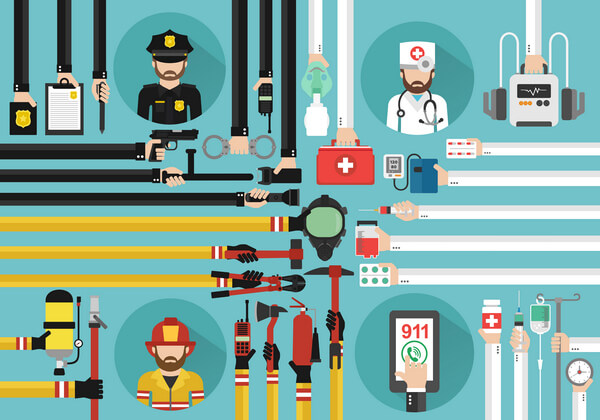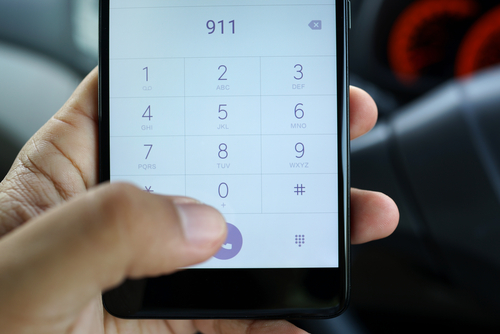



Get new exclusive access to healthcare business reports & breaking news




Carbyne’s leading NG911 call handling platform — a platform that integrates real-time video, texting, and location features on smartphones — aims to propel 911 emergency services into the 21st century.
Carbyne is investing heavily into two smartphone native features (GPS location and video calls) that can improve response times for emergency services and potentially collect more evidence than ever before.
DC-based public safety management and technology consultancy Winbourne Consulting has teamed up with Carbyne and will now help the company acquire new customers in the US market.


Calling 911 and not promptly receiving help is a nightmare for most people.
Unfortunately, for some people this nightmare proves to be a reality, as the antiquated technology most emergency call centers use does not facilitate the collection of critical information in a timely fashion.
Due to a caller’s momentary confusion, or the caller’s incapacity to pinpoint their exact location, emergency responders need to ask a number of questions which take time to be answered. This hesitation or time can be the difference between life and death, and with the technology available today, it is inexcusable to not be using the most high-tech solutions to be saving lives.
Sometimes, if the person in need is really hurt or becomes unresponsive, tracking the caller’s GPS location may be the only way to find them.
Carbyne offers a complete, plug-and-play next generation 911 solution, but it doesn’t handle any of the integration challenges. In fact, their model is to work around current call center technologies by providing their own new end to end platform and protocols.
Current emergency response systems in the US were built based on legacy landline infrastructure. As such, they’re unable to take advantage of smartphone capabilities such as chat, video or GPS. Rather than trying to integrate their solution into legacy infrastructures, Carbyne plans to replace them all thus improving the most critical metric for 911 teams everywhere: time to dispatch the right team at the right location.
The Israeli startup has already deployed their solution in Israel, Asia, Europe and Latin America, and recently signed their first deal in the United States with Fayette County in Georgia.


Carbyne offers a simple mobile application to users in the communities where their solution has been deployed. After a user downloads the app they are asked to provide their consent to share their info with local authorities in case of an emergency. If an emergency occurs, a user needs to tap one button within the mobile app to be connected with a 911 operator. Once a call with the local authorities is established, 911 operators receive the exact location of a specific caller as well as access to their video feed.
As Carbyne’s CEO Amir Elichai, says, their company’s 911 integrated system allows emergency call takers to see what’s happening in real time – reducing the risk of dispatching the incorrect team and the cost associated with making the wrong decision at the call center.
The Carbyne platform allegedly can pinpoint the location of a user within a radius of only 1 foot, even inside of a building, in a matter of seconds, while also giving residents the ability to livestream emergency events in real-time. According to the CEO of the company, their solution has reduced dispatch times by 60 to 65%.
In an era where people are live streaming from concerts, sports events, even private parties and family affairs, why not be able to livestream directly to the rescuers, from wherever the incident we are reporting takes place? Or, how Carbyne’s founder and CEO put it, “If Uber and the pizza delivery guy can determine where we are, why can’t 911?”
Structural challenges to adoption: convincing authorities to try out the new solution and being compliant with various local regulations
Despite the platform’s clear benefits, the challenge to adoption lies within strict government regulations, varying from country to country, municipality to municipality.
Amir Elichai, Carbyne’s founder, told StateScoop that getting U.S. customers to buy in to the new generation of technology has been challenging.
Fayette County in Georgia, with a population of about 110,000, will be the first in the nation to launch a “true” next generation Carbyne 911 call center. The full rollout is scheduled for early September with the government entity signing a seven year deal with Carbyne.
Bernard J. Brown, director of Fayette County 911, says he is confident this product is what he wants for his 911 service, while assistant director Amber Smith feels its going to have a tremendous positive impact on local authorities ability to pinpoint someone’s exact location in case of an emergency.


It remains to be seen whether the Fayette County’s pilot is successful for Carbyne as well as local first responders.
Currently the company is in talks with other US counties in New Jersey, Georgia, New York and Indiana, but everyone’s waiting to see how things go in Fayette County first.
However, Carbyne – and other similar tools – may face some insurmountable challenges.
As amazing as the Carbyne solution may be, the current protocols for calling 911 have some clear benefits that the Carbyne solution does not..
Today, US customers can call 911 without unlocking their phones.
It may be premature to think that, in a moment of danger, a user would actually think about finding a mobile app on their smartphone, wait for the “call 911” screen to load, then tap on the button to connect to a live agent. Additionally, it is not clear how the app will react in areas with limited to no wifi coverage.
Furthermore, the idea of giving permission to local authorities to both a user’s location and their video feed may raise significant privacy concerns among US residents in a country in which the fear of surveillance from the government is at an all time high.
These two factors are, in our opinion, even bigger barriers to adoption than regulatory compliance or the reluctance of local governments to try out new solutions.
No matter how things progress, either Carbyne or other companies should invest in redefining the interaction between residents and current emergency services. Sooner rather than later, things need to change with the 911 protocols.
The idea of an integrated emergency services experience is novel and certainly has some potential. And that potential goes beyond the smartphone experience currently within the purview of Carbyne.
Let’s think about the Amazon Echo Show – for instance, which already has dual communication and could be used to get in touch with local authorities.
Amazon could learn from the Carbyne story and deploy their own product or even come out with a better solution that is easier to integrate with existing local system. Same with Google Home. After all, as of 2018 39 million Americans already own a smart assistant, double the number from 2017.
When it comes to redefining our experience with emergency services, the sky is the limit. It’s now just a question of who’s going to create the most convenient and reliable user experience. And for now, Carbyne seems to be leading the charts in this space.